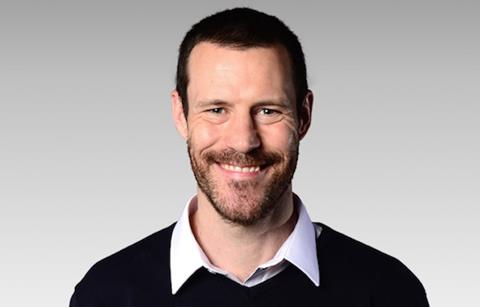
Employee Benefits Live 2017: Team GB Paracycling provides its athletes and employees with a range of personalised support measures in order to help staff manage high demand workloads in the professional sporting industry.
Presenting the closing keynote address at the end of the first day of Employee Benefits Live 2017, Jon Norfolk, head coach at Team GB Paracycling, said: “So we’ve got a high pressure environment. But with that high pressure comes high support. […] Everybody’s support network needs to be very, very different and I think for athletes, to be very aware of what they’re good at, what they need support in, and that will determine what they’re support network looks like.”
In his session, Norfolk highlighted three key principles that govern how Team GB Paracycling provide personalised support for its staff and athletes. This included having a people focus, where coaches and leaders have a personal understanding of their employees and athletes to understand what motivates them; in order to create the right environment for staff and athletes to perform to their full potential; and having systems in place that help management and coaches measure how employees and athletes are performing on a day-to-day basis to help track improvements and development opportunities.
“We can determine if we’ve got the right people to achieve those performance, if we have the right systems in place to measure those performances, and basically [determine if] we are putting our eggs in the right basket and working on the right areas. From a top level point of view, I need to create a really sharp vision. We need to get people excited and motivated. What we’re asking athletes and our staff to do is a lot. We’re asking them to commit in work, out of work. It’s a big ask, a big demand so [we’ve] got to attach people to what that destination looks like and feels like and what the outcome[s] are,” Norfolk added.
Norfolk used real-life case study examples to demonstrate how working practices in the sporting industry follow these guidelines to provide tailored support for athletes and staff. For example, ensuring that communications remain identical throughout training as well as on event day so that athletes know what to expect. This helps to provide a distraction-free environment that enables the athletes to perform at their best. For teams, individuals are communicated to on a one-to-one basis as well as collectively because this lets each athlete air their views and feelings without the potential prejudice or bias of being surrounding by their teammates, added Norfolk.
“What we try and do is be proactive in what our training, racing and planning environments look like. [Employees] can choose what [their] environment looks like and feels like. [They] all have a comment on what’s it like to work where [they] work. We all have a choice on what our personal environment and work environment looks like and feels like,” he said.
An employee's ownership over their own job role is additionally something that is empowered within Team GB Paracycling. For example, parathletes were given the opportunity to suggest to coaches the method by which they would be selected for the 2016 Rio Paralympic Games team, with only places for two out of five parathletes.
Flexibility and the ability to adjust to change is also a key driver of work in the sporting industry. This is supported by technical systems and processes that help inform changes and development. Norfolk said: “If you can measure it, then there’s a process there. If you can measure it, you can improve it.” In addition, being able to adapt quickly to change also ensures that the organisation and athletes alike remain competitive, with any obstacles reacted to in a mindful way to protect against any negativity.
He said: “We need to make sure that we develop good people as well as good cyclists. [Employers] have got to be aware of the obstacles and changes, but [employers] also have got to be very mindful of what you choose to do with those environments. It’s quite easy to react to change negatively, but to decide how [employers] want to react to something is a really powerful place to be.”






![[FisherA]_portrait_web_crop_newstyle](https://d1m12snq5oxhll.cloudfront.net/Pictures/100x67/9/2/6/108926_fishera_portrait_web_crop_newstyle_714878.jpg)




